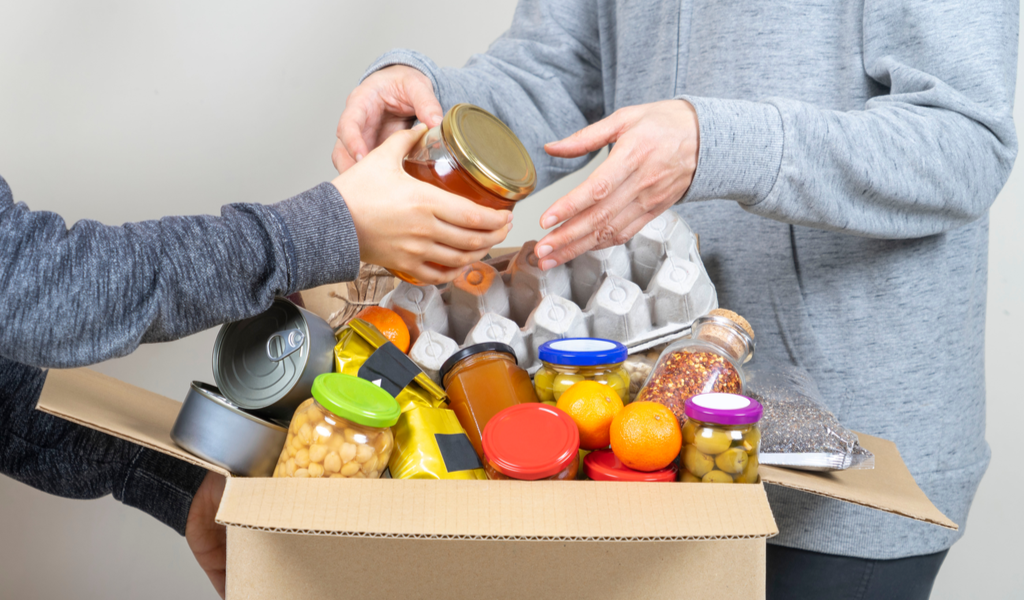Millions of people have faced job losses all around the world during the COVID-19 pandemic. Although things are slowly beginning to get back to normal, there are still numerous setbacks and obstacles that do not make this transmission easy. As a result, it will probably still be a while before people can get back to their normal jobs.
However, it’s not like unemployment didn’t exist before the pandemic and it sure will still be here well beyond it. If you are one of those people and have been struggling to make ends meet, you may rely on unemployment benefits. But for whatever reason, maybe because the government is cutting back on such benefits or because you were not eligible for them in the first place, you may be facing a future where you cannot do so.

If you’re worried about how you’re going to make things work without unemployment benefits, here are 6 things you can do to stay afloat:
Look for Quick Hire Jobs
If you’re still struggling to find a stable job, that does not mean you cannot work in the meantime. This may mean taking up a job that is less than your ideal, but anything that’ll help pay the bills is nothing to scoff at!
The best place to look for temporary jobs is in an industry that hires fast or has a high rate of turnover. These typically require little or no experience and training usually occurs on the job. Jobs in food service, retail, and hospitality can be easily found. Even if most of them only pay minimum wage, it’s better than nothing. Plus; tips!
Rideshare is another quick hire industry because companies are always looking for more riders to join their programs. Or you can take up odd jobs. The modern version of this is to join apps like TaskRabbit or Instacart, of course! You can also look for jobs such as babysitting, pet sitting, and house sitting through known contacts.
Other temporary jobs you can look for include data entry, content writing, online tutoring, transcription, and more. Since these are typically involving remote work, you’ll still have plenty of time to dedicate to your job search as well.
Sell Your Stuff
If you go through your house, we can guarantee that you can collect up a decent haul of things that are sitting without use. Why not get rid of the clutter and make some money at the same time?
There is a huge market for preloved items, so you’re in luck. There are a number of apps and websites where you can put up listings of secondhand items. This ranges from places like eBay and Facebook Marketplace, where you can sell pretty much anything to websites that are specific to items. For example, Poshmark, ThredUP, and Refashioner are all apps dedicated to the buying and selling of preloved clothes.
Get Rental Assistance
There has always been government assistance for renters who have trouble affording appropriate housing, even before the pandemic hit. Currently, there is a whopping $47 billion allocated by Congress dedicated to helping struggling renters. However, getting your hands on this money requires a lot of jumping through hoops – and paperwork. Well, get warmed up because you’re going to need it!
Each state has its own rules regarding rental assistance and different programs that offer different levels of aid, so do your research to find what the procedures are in your locality. In addition, you may even be eligible to get aid for energy and utility expenses.
A good place to start is by looking through the Consumer Financial Protection Bureau’s rental assistance page. Or you can call the 211-helpline operated by United Way which is dedicated to helping you navigate local assistance programs. Since these programs can be way more complicated to get into than seems necessary, you can use all the help you can get!
Get Food Assistance
Similar to rental assistance, government aids are also available to help you put food on the table. The most well-known of these is the Supplemental Nutritional Assistance Program (SNAP), better known as food stamps. Other than SNAP benefits, there are also other government-aided food assistance programs that you may be eligible for, including the WIC nutrition program for women, infants, and children, D-SNAPS for areas hit by disasters, free food programs for seniors with low incomes, and free meals for children in schools.
Apart from government assistance, you can also get aid through private charity programs such as soup kitchens or food pantries in your area. Community centers and places of worship such as churches, mosques, and temples are good places to get information about these programs.

Check for Extensions
If your unemployment benefits are running out soon, one thing you can do is to call up your unemployment office and check whether you are eligible for an extension. Since the laws regarding unemployment benefits vary from state to state, there’s no telling whether this is possible.
Even if you can get an extension, you will most likely need to apply for it specifically or submit a new application. In case you can’t get an extension, your unemployment office may be able to direct you towards other assistance programs that you could be eligible for. You’ll never know if you don’t ask!
Don’t Pay Debt
…if you cannot afford to do so without taking away money from food, housing, or health-related expenses.
With or without unemployment benefits, being out of work means you have very little money to spend. Whatever you have on hand should go towards securing housing and food, along with medical expenses first. If you cannot afford to make debt payments after making payments for rent and utilities, then it’s better to put it off.
It’s better to be in debt than to be homeless or sick (which will surely put you further in debt)!
Putting off debt payments doesn’t have to mean worsening your credit. The key is to be upfront with your lenders. You may not have thought of it as an option, but you may be pleasantly surprised to find that lenders can be quite understanding, especially if you have made been diligent with payments so far. You could ask to skip payments for a few months or make smaller payments that you can afford.
Many banks also have forbearance programs which is essentially the option to skip or push back payments without incurring any fees or being reported to the credit bureau. Be sure to have this conversation before you miss the date for payment as lenders will be much more understanding when given prior notice.



